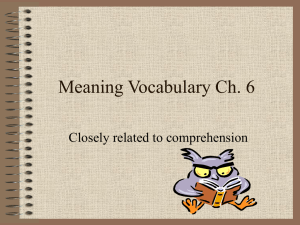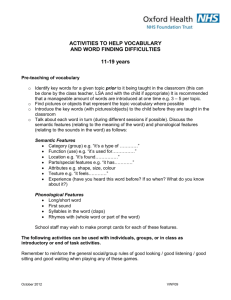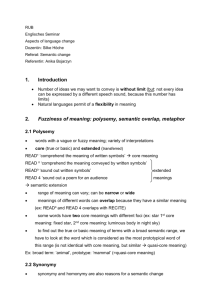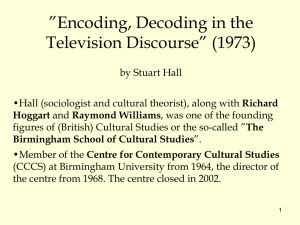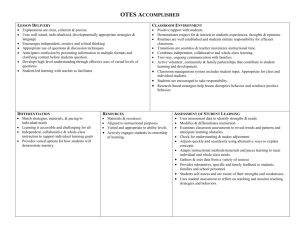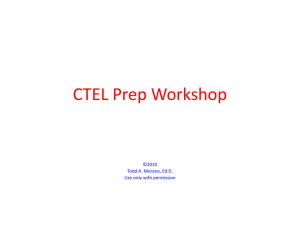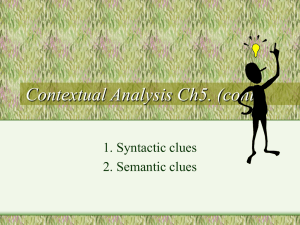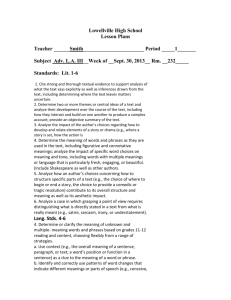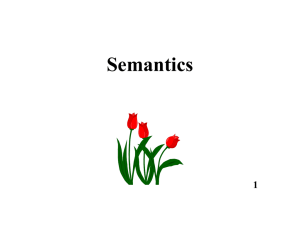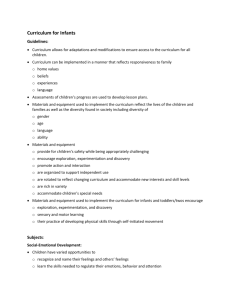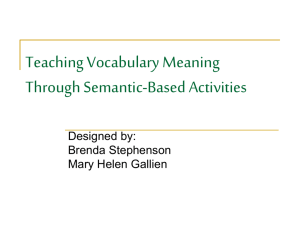72.8 KB - EngageNY
advertisement
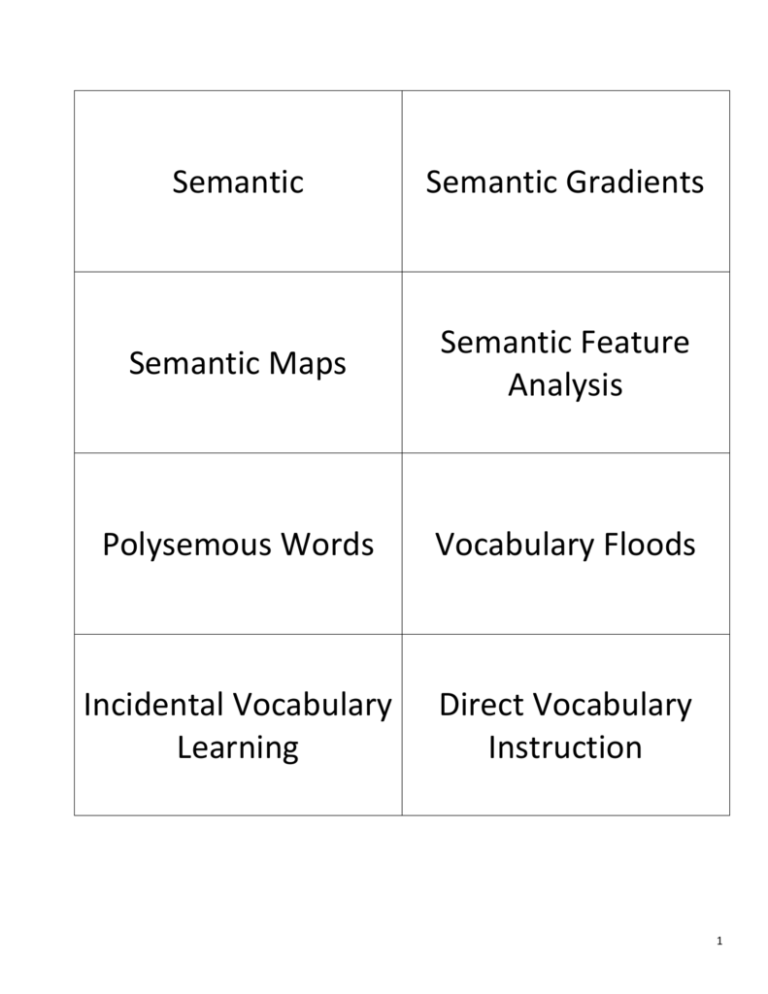
Semantic Semantic Gradients Semantic Maps Semantic Feature Analysis Polysemous Words Vocabulary Floods Incidental Vocabulary Learning Direct Vocabulary Instruction 1 Related to word meanings. Words with related meanings that describe different degrees or a continuum of that meaning. Lists or groups of thematically and conceptually related terms. Using a grid to break down the details of how sets of words are related to each other, including their similarities and differences. Words with multiple meanings. Word rich classrooms, inundated with new and related words through varied strategies. Acquiring new words haphazardly and often unintentionally, typically through independent reading and context clues. Using a variety of methods such as active and repeated encounters, to intentionally study words. 2 Flexible Knowledge Active Processing Affixes Receptive Vocabulary Expressive Vocabulary Definitional Limitations Language Gestalts Integration 3 Students understand the varied meanings of a particular word or idea and can apply that understanding to new and varied settings. Students use a variety of methods to interact with words, including linking them with known concepts, creating descriptions and explanations, organizing and grouping them in different ways, performing varied tasks, etc. Morphemes or word components, such as prefixes and suffixes, attached to a base, stem or root of a word to form a new word. Terms that are understood when encountered in text or when others use them. Terms that are known well enough that a person can readily use them in speaking and writing. Solely memorizing word meanings from dictionaries leads to challenges in using words correctly and understanding subtleties and changes in meanings in varied contexts. Words that are parts of an overarching complex concept or whole, that is more than the sum of those word parts. Linking new words to related words and concepts and meaning clusters to support increases in vocabulary acquisition. 4 Repetition Meaningful Use Hypernym Hyponym 5 Multiple exposures to new words that include hands-on, minds-on methods and use of semantic clusters, etc. When students interact with and explore words and their varied meanings physically, visually, creatively, verbally, and in speaking, reading and writing. An overarching category or abstract concept that unifies a set of concrete terms, objects, etc. Concrete terms or objects that can be included under the umbrella of a larger category or concept. 6

